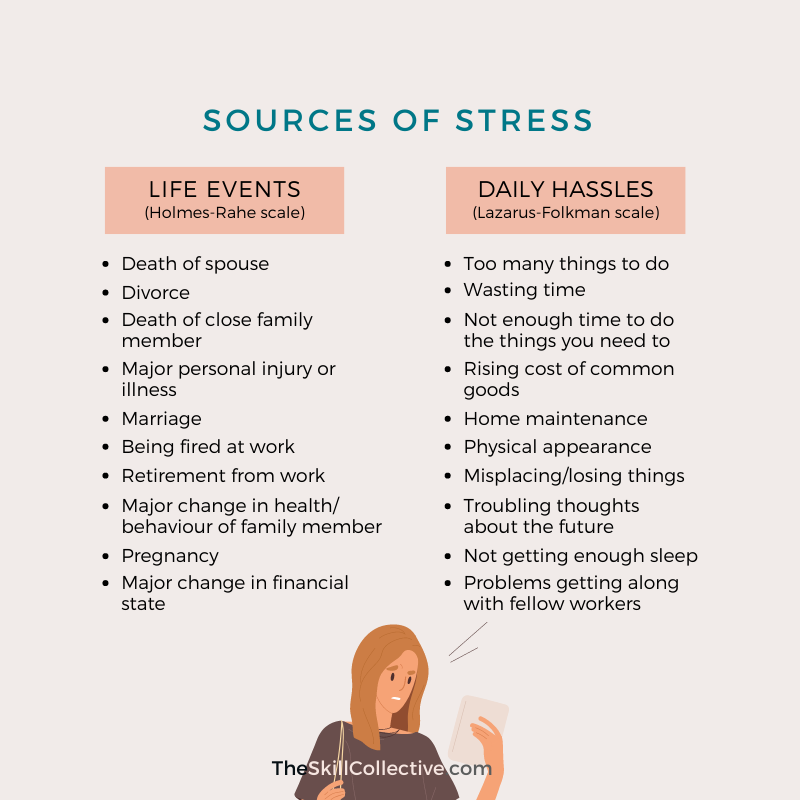Chronic stress is a significant contributor to various lifestyle disorders, including heart disease, diabetes, obesity, and mental health issues. This article delves into the physiological mechanisms through which stress impacts health, examines real-life examples, and offers evidence-based strategies for prevention and management.
Introduction: Understanding Stress and Lifestyle Disorders
In today’s fast-paced world, stress has become a ubiquitous part of daily life. While stress is a natural response to challenges, chronic stress can have detrimental effects on health. Lifestyle disorders, also known as non-communicable diseases (NCDs), are conditions primarily caused by unhealthy behaviors and life choices. These include heart disease, diabetes, obesity, and mental health disorders. Emerging research underscores the significant role stress plays in the development and progression of these conditions.
The Science Behind Stress and Its Impact on Health
1. The Stress Response System
When faced with a stressful situation, the body activates the “fight or flight” response. This involves the release of stress hormones like cortisol and adrenaline. While this response is beneficial in short bursts, prolonged activation due to chronic stress can lead to various health issues.
2. Hormonal Imbalances
Chronic stress leads to elevated levels of cortisol, which can disrupt other hormonal systems. This imbalance may contribute to conditions such as high blood pressure, weight gain, and insulin resistance.
3. Inflammation and Immune System Suppression
Persistent stress can lead to chronic inflammation, a known factor in the development of cardiovascular diseases, diabetes, and autoimmune disorders. Additionally, stress can suppress the immune system, making the body more susceptible to infections.
Real-Life Examples of Stress-Induced Lifestyle Disorders
Case Study 1: Heart Disease in Young Adults
In India, there has been a concerning rise in heart-related issues among individuals aged 30-40. Factors such as poor lifestyle choices, including unhealthy diets, lack of exercise, and high stress levels, have been identified as significant contributors to this trend. Dr. KS Sadanand, medical superintendent of Sri Jayadeva Institute of Cardiovascular Sciences and Research in Mysuru, emphasizes the importance of timely corrective actions to reduce the risk of heart disease, especially among younger populations.
Case Study 2: The Role of Stress in Diabetes Management
A study published in the Journal of Psychosomatic Research found that individuals with high levels of stress had poorer control over their blood sugar levels. This highlights the need for stress management as part of diabetes care.
The Connection Between Stress and Specific Lifestyle Disorders
1. Cardiovascular Diseases
Chronic stress is a well-established risk factor for heart disease. It can lead to high blood pressure, increased heart rate, and inflammation, all of which contribute to the development of cardiovascular conditions. Stress may also encourage unhealthy behaviors like smoking and overeating, further exacerbating the risk.
2. Diabetes and Metabolic Disorders
Stress affects metabolic health through autonomic, neuroendocrine, and immune responses. These changes can lead to insulin resistance and increased blood sugar levels, contributing to the development of type 2 diabetes.
3. Obesity
Stress can lead to overeating, particularly of high-calorie comfort foods, and reduced physical activity. These behaviors contribute to weight gain and obesity. Additionally, stress-induced hormonal changes can promote fat storage, especially in the abdominal area.
4. Mental Health Disorders
Chronic stress is a significant risk factor for mental health conditions such as anxiety and depression. It can alter brain function and structure, affecting mood regulation and increasing susceptibility to these disorders.
Strategies for Managing Stress to Prevent Lifestyle Disorders
1. Regular Physical Activity
Engaging in regular exercise helps reduce stress hormones and stimulates the production of endorphins, chemicals in the brain that act as natural painkillers and mood elevators. Activities like walking, yoga, and swimming can be particularly beneficial.
2. Healthy Eating Habits
A balanced diet rich in fruits, vegetables, whole grains, and lean proteins can help manage stress levels. Avoiding excessive caffeine, alcohol, and sugar can also prevent stress-induced health issues.
3. Adequate Sleep
Quality sleep is crucial for stress management. Lack of sleep can increase stress levels and impair the body’s ability to cope with stress. Adults should aim for 7-9 hours of sleep per night.
4. Mindfulness and Relaxation Techniques
Practices such as meditation, deep breathing exercises, and mindfulness can help activate the body’s relaxation response, reducing stress levels. These techniques can improve overall well-being and resilience to stress.
5. Social Support
Maintaining strong social connections provides emotional support and can act as a buffer against stress. Engaging in social activities and seeking support from friends and family can enhance coping mechanisms.
Frequently Asked Questions (FAQs)
1. How does stress contribute to heart disease?
Chronic stress can lead to high blood pressure, increased heart rate, and inflammation, all of which contribute to the development of cardiovascular conditions. Stress may also encourage unhealthy behaviors like smoking and overeating, further exacerbating the risk.
2. Can stress cause diabetes?
Yes, stress affects metabolic health through autonomic, neuroendocrine, and immune responses. These changes can lead to insulin resistance and increased blood sugar levels, contributing to the development of type 2 diabetes.
3. What are the mental health effects of stress?
Chronic stress is a significant risk factor for mental health conditions such as anxiety and depression. It can alter brain function and structure, affecting mood regulation and increasing susceptibility to these disorders.
4. How can I manage stress effectively?
Effective stress management strategies include regular physical activity, healthy eating habits, adequate sleep, mindfulness and relaxation techniques, and maintaining strong social connections.
5. Is stress management important in preventing lifestyle disorders?
Yes, managing stress is crucial in preventing lifestyle disorders. Chronic stress can lead to conditions such as heart disease, diabetes, obesity, and mental health disorders. Implementing stress management techniques can reduce the risk of these conditions.
Conclusion
Stress plays a pivotal role in the development and progression of lifestyle disorders. Understanding the mechanisms through which stress impacts health is essential for effective prevention and management strategies. By adopting healthy lifestyle habits and stress management techniques, individuals can mitigate the adverse effects of stress and improve overall well-being.




